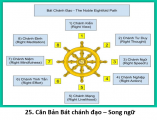Wisdom and Inner Silence
Trí Tuệ Và Nội Tĩnh
English: Ajahn Brahm
Việt ngữ: Chơn Quán Trần-ngọc Lợi
Compile: Lotus group
39. Trí Tuệ Và Nội Tĩnh – Wisdom and Inner Silence - Song ngữ
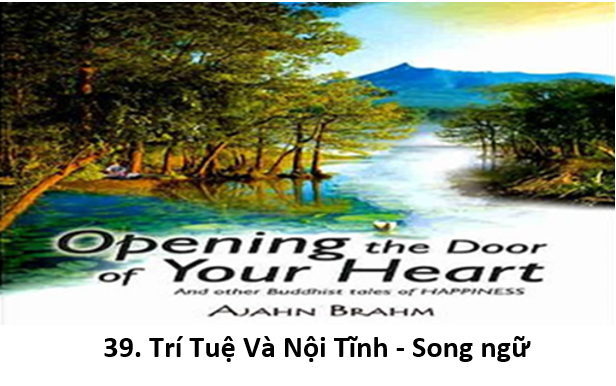
Chương 7: Trí Tuệ Và Nội Tĩnh – Wisdom and Inner Silence - Song ngữ
59. The wings of compassion - Lòng Từ Chắp Cánh
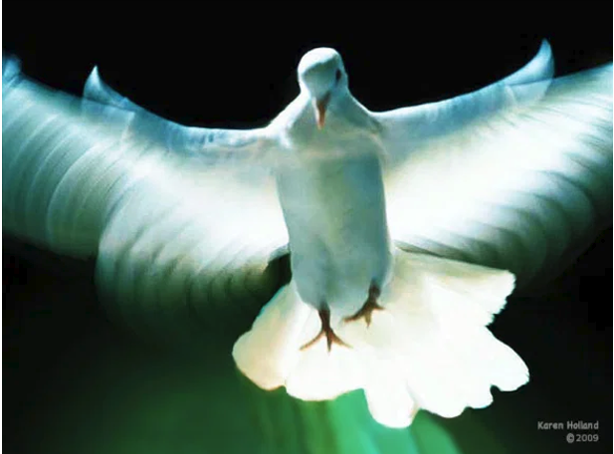
If kindness is imagined as a beautiful dove, then wisdom is its wings. Compassion without wisdom never takes off.
If kindness is imagined as a beautiful dove, then wisdom is its wings. Compassion without wisdom never takes off.
Nếu từ bi được ví như con bồ câu, trí tuệ được xem như đôi cánh. Từ bi thiếu, trí tuệ không thể bay bổng được.
A boy scout performed his good deed for the day by guiding an old lady across a busy road. The trouble was, she didn’t want to go; she felt too embarrassed to tell him. That story, unfortunately, describes well much that goes by the name of compassion in our world. We assume, too often, that we know what the other person needs.
Em hướng đạo nọ có lòng tốt muốn dẫn đưa bà cụ qua đường, nhưng cụ không muốn đi mà không muốn nói sợ em buồn. Lòng từ bi của chúng ta thường hay bị đặt không đúng chỗ như vậy đó! Chúng ta cứ đơn phương nghĩ giùm người khác.
A young man, born deaf, was visiting his doctor accompanied by his parents for a regular check-up. The doctor excitedly told his parents about a new medical procedure, which he had just read about in a medical journal. In ten percent of people born deaf, full hearing can be restored through simple, inexpensive operation. He asked the parents if they wanted to give it a try. They quickly said yes.
Có chàng thiếu niên điếc từ tấm bé đang được bác sĩ khám sức khỏe định kỳ. Ông bác sĩ giàu lòng nhân ái vui vẻ báo cho cha mẹ cậu biết ông vừa đọc một tài liệu y khoa cho biết bé sanh ra bị điếc có thể chữa khỏi nhờ một y thuật mới. Ông hỏi và cha mẹ cậu mừng xin cho cậu thử. Thí nghiệm thành công.
That young man was one of the ten per cent whose hearing was fully restored. And he was so angry and upset with both his parents and the doctor. He hadn’t heard what they were discussing at his regular check-up. No one asked him if he wanted to hear. Now he complained that he had to endure the constant torment of noise, which he could make little sense of. He never wanted to hear in the first place.
Cậu là một trong số mười lăm phần trăm những người mà y thuật mới đem lại thính thị bình thường. Thay vì hoan hỷ, cậu rất bực mình và giận mẹ cha lẫn ông bác sĩ tốt bụng. Cậu không được biết gì hết trong lần đi khám định kỳ; không ai hỏi cậu có muốn nghe không. Giờ đây cậu phải nghe liên tục đủ thứ âm thanh mà cậu cho là không có nghĩa gì hết. Từ lúc đầu cậu đâu bao giờ muốn nghe.
The parents and the doctor, and myself before I read this story, assumed that everyone would want to hear. We knew best. Compassion that carries such assumptions is foolish and dangerous. It causes so much suffering in the world.
Khi đọc xong chuyện này tôi mới biết ra rằng lâu nay chúng ta ai ai cũng tưởng mọi người đều muốn nghe. Chúng ta tự cho mình là người hiểu biết nên tự ý định đoạt giùm người khác mà không cần dọ hỏi ý họ. Lòng từ của chúng ta một lần nữa không được đặt đúng chỗ. Từ bi ấy chỉ đem lại đau khổ.
60. Caring for a son - Lo cho con cái
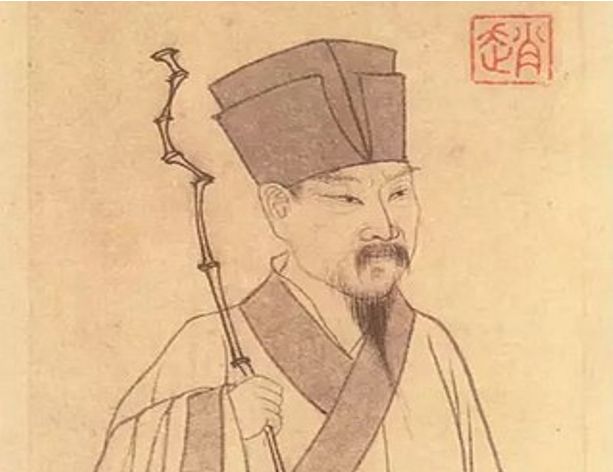
Tô Đông Pha (Ảnh: Wikipedia) - Chinese poet Su Tung P’o
The trouble with parents is that they always think they know best what their child needs. Often, they get it wrong. Sometimes they get it right, as did the Chinese poet Su Tung P’o (1036–1101 CE) almost a thousand years ago when he wrote the following poem:
Cha mẹ nào cũng tưởng mình biết nhiều và biết con cái mình muốn gì, cần gì. Sai! Nếu có đúng thì chỉ đúng với một số ít người mà thôi, như Tô Đông Pha (1037-1101) chẳng hạn. Nhà thơ Trung Quốc nổi tiếng này viết cách nay gần một ngàn năm như sau:
On the birth of my son
Nhân ngày con ra đời
Families, when a child is born
Want it to be intelligent.
I, through intelligence,
Having wrecked my whole life,
Only hope the baby will prove ignorant and stupid.
Then he will crown a tranquil life,
By becoming a Cabinet Minister.
Con vừa mới chào đời
Gia đình
Muốn con mau lớn
Tôi,
Vì hai chữ khôn ngoan,
Làm hỏng cả đời mình,
Chỉ muốn con mình dốt
Nếu thêm khờ càng tốt.
Rồi,
Lớn khôn, nó vui sướng
Trên chiếc ghế tể tướng.
(Tạm dịch theo bản tiếng Anh:
On The birth of my son: Families when a child is born, want it to be intelligent. I, though intelligent. Having wrecked my whole life. Only hope the baby will prove ignorant and stupid. Then he will crown a tranquil life, By becoming a Cabinet Minister.)
61. What is wisdom? - Trí Huệ là gì?

“Our future is a race between the growing power of our technology and the wisdom with which we use it. Let’s make sure wisdom wins.” — Steven Hawking
While still a student, I would spend most of my summer vacations walking and camping in the highlands of Scotland. I delighted in the solitude, beauty and peace of the Scottish mountains.
Trong đời sinh viên, mỗi lần hè về, tôi thường lên miền cao nguyên Scotland du ngoạn. Tôi rất thích vẻ đẹp thiên nhiên và sự tĩnh lặng của núi rừng trên đó.
One memorable afternoon, I was ambling by the ocean along a narrow road, which wound along the headlands and inlets of the far north. The warm, bright sun was like as pot light for the extraordinary beauty around me. The moorland was an endless sweep of velvety grass in the fresh green of springtime; the cliffs had been sculpted like cathedrals soaring high above the swirling sea; the ocean was the blue of late evening, as if scattered with fairy lights sparkling and twinkling in the sunrays; and small green and brown rock islands seemed to surf on the waves as far as the haze-line of the horizon. Even the gulls and the terns were gliding and wheeling—in euphoria, I was certain. It was nature showing its finest, in one of the most scenic parts of our world, on a day of sunny glory.
Một chiều nọ tôi nhẹ bước thong dong trên con đường mòn quanh co theo các mũi, ghềnh dọc biển xanh trên mạn Bắc. Ánh tà dương chiếu rạng tạo một khung cảnh vô vàn ngoạn mục. Đồng hoang bên dưới trải rộng một thảm cỏ màu lá mạ mút tận chân trời. Nhiều thành đá vươn cao như thánh đường chót vót. Biển xanh phản chiếu ánh nắng chiều long lanh ngoạn mục. Nhiều cụm đá xám là đà trên mặt nước, đó đây xa tít ngoài khơi. Hải âu bay lượn nhởn nhơ tạo nhiều chấm phá màu trắng tinh trên nền trời tím thẳm. Thiên nhiên. Ôi, thiên nhiên tuyệt vời, và một buổi chiều tà khó quên!
I was skipping along in spite of my heavy back pack. I was joyous, without a care, high on the inspiration from nature. Ahead of me, I saw a small car parked by the roadside next to the cliff. Immediately, I imagined that its driver had also been overcome by the beauty of the day here and had stopped to drink its ambrosia. When I was close enough to the car to see through its back window, I was disappointed and dismayed. The single occupant of that vehicle, a middle-aged man, was reading a newspaper.
Tôi thả bộ với chiếc xách bộ hành trên vai. Tôi hân hoan chào đón thiên nhiên. Qua khúc quanh tôi nhìn thấy trước mặt mình một chiếc xe hơi nhỏ đậu sát bên lề hướng mũi về phía ghềnh đá cao. Tôi tưởng tượng người ngồi trên xe đang say sưa thưởng ngoạn cảnh đẹp trời ban, như tôi. Nhưng tôi thất vọng ê chề khi tới gần thấy ông đọc báo.
The newspaper was so big, it blocked the whole view of the world around him. Instead of seeing ocean and cliff and island and grassland, all he could see was war and politics and scandals and sport. That newspaper was wide, yet very thin. Only a few millimeters on the other side of that black dreary newsprint lay the pure rainbow-colored elation of nature. I thought to take out a pair of scissors from my pack, and cut a small hole in his newspaper, so he could see what was on the other side of the article on the economy he was reading. But he was a big hairy Scotsman, and I was a scrawny underfed student. I left him to read about the world, while I danced on into it.
Tờ báo mở rộng che lấp trọn khung trời biển mênh mông trước mặt ông. Tờ báo mỏng này thật quái ác! Tôi muốn lấy kéo khoét một lỗ ngay trên bài ông đang dán để ông có dịp nhìn thấy muôn màu sắc bên kia làn giấy đặc chữ sậm sì. Nhưng tôi không dám vì tôi chỉ là một cậu sinh viên đói ăn so với ông, một nông dân vạm vỡ. Tôi để ông yên đọc tin tức quốc tế còn tôi vui với bước chân phiêu lãng của mình.
Our minds are mostly occupied with the sort of stuff that fills newspapers: wars in our relationships, politics in family and at work, personal scandals which upset us so, and the sport of our carnal pleasures. If we do not know how to putdown that ‘newspaper in our mind’ from time to time, if that is what we are obsessed with, if that is all we know—then we will never experience the unsullied joy and peace of nature at is finest. We will never know wisdom.
Thấy đâu nói đó, chớ tôi biết chúng ta ai ai cũng bị nhồi nhét bởi các tin tức dồn dập: giặc giã, chính trị, kinh tế, xã hội, thể thao, chuyện gia đình, công việc làm ăn và cả những tin “xe cán chó” (tiếng lóng chỉ những tin tức ( chuyện) không quan trọng đăng trên báo để lấp những chỗ trống) nữa. Nếu chúng ta không biết cách xếp “tờ báo tâm” này lại, dầu chỉ là thỉnh thoảng, mà cứ để nó luôn mở trước mắt, chúng ta sẽ không bao giờ thưởng thức được niềm vui thanh tịnh và cảnh an lành mà thiên nhiên lúc nào cũng sẵn dành cho chúng ta. Và dĩ nhiên chúng ta không thể tự hào mình là người có trí tuệ được.
62. Eating wisely - Ăn, phải khôn ngoan
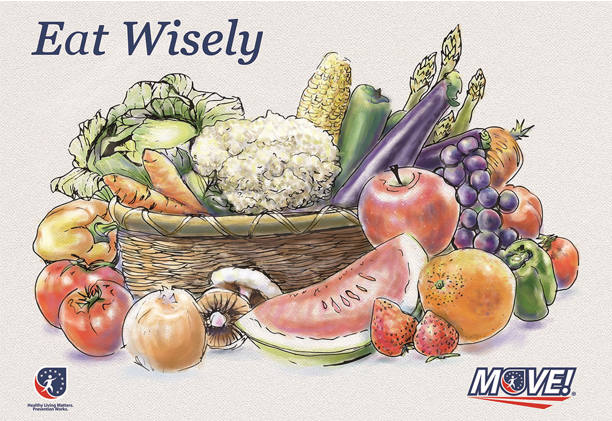
… telling your partner to be quiet, so, you can get your full money’s worth is eating wisely.
Some of my friends enjoy dining out. Some evenings they go to very expensive restaurants, where they are prepared to spend a lot of money on exquisite food. However, they waste the experience by neglecting the taste of the food and concentrating on the conversation they are having with their partner.
Tôi có một số bạn thích đi ăn nhà hàng, nhà hàng sang trọng với đủ món ngon vật lạ, và dĩ nhiên rất đắc. nhưng họ không thật sự thưởng thức vì mải mê chuyện trò với bạn lúc vào bàn.
Who would talk during a concert given by a great orchestra? Chatter would hinder your enjoyment of the beautiful music, and would probably get you thrown out. Even when watching a great movie, we hate being distracted. So why do people engage in chitchat when they dine out?
Ai có thể nói chuyện trong lúc nhạc tấu những khúc bất hủ? Nói chuyện lúc bấy giờ chắc chắn bạn không sao nghe được nhạc; đó chưa kể bạn có thể bị tống ra ngoài. Xem hát cũng vậy, nói chuyện thì làm sao chú ý theo dõi câu chuyện, phải không các bạn? Vậy tại sao chúng ta nói chuyện trong lúc ăn?
If the restaurant is mediocre, then it may be a good idea to start a conversation to take your mind off the insipid meal. But when the food is really delicious, and very costly, telling your partner to be quiet so you can get your full money’s worth is eating wisely.
Nếu bữa ăn dở bạn có thể nói chuyện để quên cái dở của thức ăn. Nhưng nếu thức ăn ngon và đắt tiền, bạn nên ngừng nói để ăn cho khoái khẩu và đáng đồng tiền chớ. Khôn ngoan là ở chỗ đó.
Even when we do eat in silence, we often fail to savor the moment. Instead, while we are chewing on one piece of food, our attention is distracted as we look at our plate to choose the next thing on our fork. Some are even two or three forkfuls ahead of themselves—one forkful is in the mouth, one is waiting on the fork, another is heaped up waiting on the plate, while the mind contemplates the morsel coming third on the fork.
Thậm chí lúc ăn trong yên lặng, chúng ta cũng không mấy khi thật sự thưởng thức. Chúng ta đang nhai miếng này lại chú ý đến miếng khác nữa đôi khi không phải một mà ba bốn miếng khác - miếng đang nhai, miếng đang gắp, miếng trong chén, miếng sẽ gắp,…
In order to relish the taste of your food, and know life in its fullness, we should often savor one moment at a time in silence. Then we might get our money’s worth in the five-star restaurant called life.
Để tận hưởng hương vị của thức ăn và biết sống một cách viên mãn, chúng ta nên tác ý vào giây phút hiện tại và giữ im lặng. Được vậy mới đáng đồng tiền mà chúng ta bỏ ra trả cho cái nhà hàng năm sao, gọi là cuộc đời này đây.
63. Solving the problem - Giải quyết vấn đề
As a Buddhist monk, I often get to talk live on radio shows. I should have been more cautious about accepting a recent invitation to a radio station one night. Only after I entered the studio was, I told that the show was to be on ‘adult themes’, and that I would be taking live questions, together with a well-known, professional sexologist!
Tôi có nhiều dịp phán đàm trên đài truyền thanh mà đáng lẽ tôi nên thận trọng hơn trong việc nhận lời. Một tối nọ lúc đến nơi tôi mới biết mình được mời tham dự một buổi mạn đàm trực tiếp với thính giả về “chuyện của người lớn” cùng một số bác sĩ chuyên gia tình dục nổi tiếng.
Once we got over the problem of pronouncing my name on air (we agreed that I would be called ‘Mr. Monk’), I did very well. As a celibate monk, I know little of the details of intimacy, but the underlying problems raised by the callers were easily recognized. Soon all the incoming phone calls were directed at me, and I ended up doing most of the work on the two-hour show. But it was the professional sexologist who received the fat cheque. All I got, being a monk who can’t receive money, was one chocolate bar. Buddhist wisdom solved the underlying problem again. You can’t eat a cheque, and that chocolate bar was delicious. Problem solved, mmm!
Về việc tự giới thiệu trước khi vào đề tôi không thấy có chi trở ngại - qua sự đồng ý chung, tôi tự xưng mình là “ông sư”. Tới phần hỏi đáp tôi hơi lo vì là một nhà tu độc thân lâu nay có biết gì về chuyện chăn gối. Đã vậy hầu hết các câu hỏi đều liên quan đến vấn đề này và đều mong tôi được giải đáp. Tôi đã phải vất vả trong suốt hai tiếng đồng hồ liền - để rồi bác sĩ chuyện gia tình dục nói ít mà lãnh một chi phiếu rất to. Còn tôi được phong sô-cô-la (vì sư không được nhận tiền). Một lần nữa là một vấn đề căn bản của con người được Phật giáo giải quyết. Và phong sô-cô-là ngon tuyệt trong lúc tấm chi phiếu không thể ăn được!
At another talkback show on radio, a caller presented me with the following question: ‘I’m married. I’m having an affair with another woman, and my wife doesn’t know. Is this alright?’ How would you answer? ‘If it was alright,’ I replied, ‘you wouldn’t be ringing me to ask.’
Trong một buổi mạn đàm khác trên truyền thanh, tôi được thính giả khác hỏi như sau: “Là người có vợ, tôi có bồ nhưng tôi giấu vợ tôi không biết. Làm vậy có đúng không?” Bạn sẽ trả lời như sao nào? Còn tôi đáp: “Nếu đúng thì bạn đâu phải mất thời giờ hỏi sư?”
Many people ask such questions knowing that what they are doing is wrong, but in the hope that some ‘expert’ will convince them it is right. Deep inside, most people know what’s right and wrong—only some don’t listen carefully.
Nhiều người hỏi đã biết mình sai quấy rồi, nhưng họ cứ hỏi hy vọng được “một chuyên gia” bênh vực cho mình là đúng. Trong thâm tâm, hầu hết đều biết đâu là phải, đâu là trái - chỉ có một số ít không chịu lắng nghe tâm mình mà thôi.
64. Unwise listening - Nghe không sáng suốt
The phone rang one evening at our Buddhist center. ‘Is Ajahn Brahm there?’ demanded the angry caller. ‘I’m sorry,’ replied the devout Asian woman who picked up the phone. ‘He’s resting in his room. Please call back in thirty minutes.’‘
Chuông điện thoại trong tự viện reo. Bên kia đầu dây là một giọng có vẻ mất bình tĩnh:
“Có Sư Brahm đó không?”
“Thưa sư đang nghỉ trong cốc,” một đệ tử người Á châu đáp. “Xin ông gọi lại lối nữa giờ sau.”
Grr! He’ll be dead in thirty minutes,’ growled the caller and then he hung up.
“Hừ…ừm…, ông ấy sẽ chết trong vòng ba mươi phút nữa thôi.” Người gọi lẩm bẩm.
Twenty minutes later, when I came out of my room, the elderly Asian woman was still sitting white-faced and trembling. Others were around her trying to find out what was wrong, but she was too shocked to speak. But when I coaxed her, she blurted out, ‘Someone’s coming to kill you!’
Hai mươi phút sau tôi bước ra khỏi cốc thấy bà trả lời điện thoại khi nãy đứng đó, mặt xanh dờn và đang run rẩy. Một số Phật tử vây quanh và hỏi bà có sao không? Bà không thể nói được vì đang bị sốc nặng. Được tôi vỗ về bà kể, “Có người hăm giết sư!”
I had been counselling a young Australian man since he was first declared HIV positive. I had taught him meditation and many wisdom strategies to help him cope. Now he was nearing his death. I had visited him only the day before and was expecting a call from his partner at any time. So, I soon figured out what the call had meant. It was not me who would be dead in thirty minutes, it was the young man with AIDS.
Lâu nay tôi có khuyên lơn một thanh niên từ lúc anh ta biết mình nhiễm HIV (Human Immunodeficiency Virus là loại vi khuẩn gây bệnh AIDS). Tôi cũng có dạy anh thiền và dùng trí tuệ đối phó với vấn đề. Nay bệnh tình anh vào thời kỳ nguy ngập. Tôi vừa viếng anh hôm qua và đang đợi người bạn đời anh gọi đưa tin không vui. Do đó tôi biết cú điện thoại kia muốn nói gì rồi. Không phải tôi sẽ chết trong ba mươi phút mà là chàng thanh niên bị nhiễm AIDS (Acquired Immune Deficiency Syndrome =Hội chứng suy giảm Miễn Dịch do vi khuẩn HIV làm tê liệt miễn dịch khiến bệnh nhân dễ bị nhiễm trùng và tử vong. Lây lan qua đường tình dục, đường máu và đường mẹ truyền cho con).
I rushed to his home and saw him before he died. Fortunately, I also explained the misunderstanding to the terrified Asian woman before she died too, from shock!
Tôi lật đật chạy tới nhà anh để gặp anh lần sau cùng. Rất may, trước khi ra xe tôi có giải thích cho bà nghe điện thoại biết sự nghe lầm của bà kẻo bà cũng có thể chết, vì sốc!
How often are what is said and what we hear not the same?
Có biết bao nhiêu lần, cũng thời là một câu chuyện, mà nói và nghe không giống nhau?
65. What wisdom is not - Cái gì không phải là trí tuệ?
A few years ago, a number of scandals involving Thai monks appeared in the international press. Monks are bound by their rules to observe celibacy strictly.
In my tradition, to be beyond all suspicion regarding celibacy, monks aren’t allowed to have any physical contact with a woman, nor are nuns allowed physical contact with a man. In the scandals that were publicized, some monks had not kept those rules. They were naughty monks. And the press knew that their readers were only interested in naughty monks, not the boring, rule-keeping ones.
Vài năm trước đây có mấy câu chuyện gièm pha sư Thái đăng trên báo chí nước ngoài. Theo giới luật tăng ni phải sống độc thân. Tông phái tôi còn gao gắt hơn, tăng ni không được đụng chạm người khác phái. Một số tăng không giữ đúng giới luật nên bị chỉ trích trên báo. Đó là một số sư bất hảo mà báo chí muốn khai thác để thỏa mãn tánh hiếu kỳ của một số độc giả. Chớ còn tăng ni giữ đúng giới luật có gì mà nói - chán phèo nên có ai thèm để ý!
At the time of these events, I thought it was high time I made my own confession. So, one Friday evening in our temple in Perth, before an audience of some three hundred people, some of them long-standing supporters, I summoned up courage and told them the truth.
Vào thời điểm đó tôi nghĩ là lúc tôi nên nói một sự thật của tôi. Một tối thứ sáu nọ tôi lấy hết bình sanh thú thật với thính chúng trên ba trăm Phật tử rằng:
‘I have a confession to make,’ I began. ‘This is not easy. Some years ago, ...’ I hesitated. ‘Some years ago,’ I managed to continue, ‘I spent some of the happiest hours of my life ...’ I had to pause again. ‘I spent some of the happiest hours of my life ... in the loving arms of another man’s wife.’ I’d said it. I’d confessed. ‘We hugged. We caressed. We kissed.’ I finished. Then I hung my head and stared at the carpet.
“Tôi có điều muốn thưa với quý tín chủ,” tôi bắt đầu và ấp a ấp úng tiếp, “Trước đây, tôi có sống một thời gian rất hạnh phúc…trong…vòng…tay…thương yêu…của một người đàn bà…vợ người ta.” Tôi thú nhận tiếp, “Tôi có được ôm ấp, nâng niu, vuốt ve, và hôn hít nhiều lần.” Nói tới đây làm như tôi nghẹn lời, tôi cúi đầu và nhìn đăm đăm xuống thảm.
I could hear the sound of air suddenly drawn in through the mouth in shock. Hands were covering gaping mouths. I heard a few whispers, ‘Oh no! Not Ajahn Brahm.’ I pictured many long-standing supporters heading for the door, never to return. Even lay Buddhists didn’t go with other men’s wives—that’s adultery. I raised my head, looked at my audience confidently, and smiled. ‘That woman,’ I explained before anyone was out of the door. ‘That woman was my mother. When I was a baby.’ My audience exploded in laughter, and relief.
Bấy giờ tôi nghe tiếng nấc vì sốc của nhiều Phật tử. Và cả tiếng xì xầm nữa, “Ồ, Sư Brahm! Có thể như vậy sao?” Tôi hình dung sẽ có nhiều đệ tử trung thành của tôi bỏ tôi bước ra khỏi cửa không bao giờ trở lại. Thật tình mà nói, cả người thường cũng không được phép dan díu với vợ người - đó là thông gian rồi.
Giây phút sau tôi ngẩng đầu, nhìn thính chúng một cách tự tin và mỉm cười. Tôi giải thích trước khi có người bước ra khỏi cửa: “Người đàn bà ấy,...bà là mẹ tôi…và tôi là đứa con nhỏ của bà.” Tất cả thở phào và rộ lên cười vui vẻ.
‘Well it was true!’ I shouted through the microphone above the howling. ‘She was another man’s wife, my Dad’s. We hugged, we caressed, and we kissed. They were some of the happiest hours of my life.’
“Đúng như vậy đó, thưa các bạn,” tôi nói lớn trong micro. “Bà là vợ của ba tôi, có đúng không, các bạn?” Tôi rống tiếp, “Bà đã ẵm bồng tôi trong tay, nưng niu tôi, hôn tôi và đó dĩ nhiên là những giây phút thần tiên của tôi chứ còn sao nữa?”
When my audience had wiped off their tears and stopped giggling, I pointed out that nearly all of them had judged me, mistakenly. Even though they had heard the words from my own mouth, and their meaning seemed so clear, they had leapt to the wrong conclusion. Fortunately, or rather because it was carefully planned, I was able to point out their error. ‘How many times,’ I asked of them, ‘are we not so fortunate, and jump to conclusions, on evidence that seems so certain, only to be wrong, disastrously wrong?’ Judging absolutely — ‘This is right, all else is wrong’—is not wisdom.
Lúc thính chúng lau hết nước mắt và trở về tĩnh lặng, tôi bảo tất cả đã phê phán tôi một cách hết sức sai lầm. Dầu nghe chính miệng tôi thốt lên và lời tôi nói rõ ràng, tất cả đều đã đi đến kết luận sai lầm. May cho tôi, hay đúng ra nhờ tôi đã chuẩn bị chu đáo trước, tôi có thể chỉ cho họ thấy sai lầm của họ. Tôi hỏi:
“Có bao nhiêu lần rồi, chúng ta đã vội đi đến kết luận sai, rất sai, dầu tang chứng có hiển nhiên?” Độc đoán phê phán - “Đây mới đúng, còn tất cả đều sai” - không phải là trí tuệ vậy.
66. The danger of an open mouth - Cái miệng ham nói: Tai ách!
Our politicians have a reputation for being open, especially in the area between their nose and their chin. Such has been the tradition for many a century, as the following proverb from the Buddhist Jataka tales shows.
Các chính trị gia của chúng ta nổi tiếng rất “mở” nhất là ở chỗ giữa mũi và cằm. Đó là truyền thống có từ bao đời nay, như câu chuyện tiền thân (Jataka) sau đây đã minh chứng.
A King, many centuries ago, was exasperated by one of his ministers. Whenever a matter for discussion came up at court, this minister would interrupt and begin a monologue, which always seemed to go on forever. No one, not even the King, could get a word in. Furthermore, what the minister had to say was even more uninteresting than the inside of aping-pong ball.
Thuở nọ có nhà vua rất bực bội với một quan đại thần của Ngài. Vị quan nay tâu rồi quên thôi mỗi khi Ngài thiết triều đến đỗi Ngài cũng không thể ngỏ lời. Hơn thế nữa, chuyện ông tâu lạt lẽo và rất vô duyên.
After yet another unproductive session, the King sought peace in his garden away from the frustration of court politics. In the public part of his garden, he spotted a small group of children laughing excitedly as they gathered around a middle-aged, disabled man who was sitting on the ground. The children gave the man a few coins, pointed to a small, leafy tree and asked him for a chicken. The man took out a bag of small stones and a peashooter and began to fire the stones at the tree. He stripped leaf after leaf off the small tree with rapid-fire shots from his peashooter. In an incredibly short time, and with flawless accuracy, he shaped the tree like a rooster. The children gave him some more money, pointed to a large bush and asked for an elephant. The disabled marksman soon sculpted the bush with his peashooter into the form of an elephant. As the children applauded, the King had an idea.
Để tìm sự tĩnh lặng, nhà vua thường ra dạo ngoài vườn ngự uyển sau khi bãi chầu. Trên bước du ngoạn Ngài gặp một đám trẻ đang vui cười hả hê với một người què đứng tuổi ngồi dưới đất. Chúng trao cho ông quan tiền và yêu cầu ông bắt cho chúng con gà rừng trong bụi rậm. Ông mở túi lấy ná thun và đá ra nhắm bụi cây bắn. Ông tỉa từng chiếc lá một cách chính xác, và chẳng bao lâu biến bụi rậm thanh hình con gà rừng. Đám trẻ cho ông thêm tiền và chỉ bụi khác bảo ông điêu khắc con voi. Trong nháy mắt dáng con voi rừng hiện ra rõ ràng trước sự ngạc nhiên vỗ tay khen ngợi của tất cả. Bấy giờ nhà vua nảy ra một ý kiến.
The King went up to the disabled man and offered to make him rich beyond his wildest dreams, if only he would help with an irritating little problem. The King whispered something into the man’s ear. The man nodded in agreement and the King smiled for the first time in weeks.
Vua hứa sẽ ban thưởng ông tiền bạc châu báu nếu ông có thể giải quyết cho Ngài một chuyện nhỏ, ông nghe xong khẽ gật đầu. Lần đầu tiên trong nhiều ngày qua nhà vua mới có dịp mỉm cười.
The following morning, court began as usual. Nobody took much notice of the new curtain along one of the walls. The government was to discuss another increase in taxes. No sooner had the King announced the agenda, than the manic-mouthed minister began his harangue. As he opened his mouth, he felt something small and soft hit the back of his throat and fall down into his stomach. He carried on speaking. A few seconds later, something small and soft entered his mouth again. He gulped it down mid-sentence and continued his speech. Again, and again he had to swallow during his speech, but such irritations were not going to stop what he had to say. After half an hour of determined lecturing, gulping down whatever it was every few seconds, he was feeling very, very queasy. But such was his stubbornness that he would not stop his oratory. After another few minutes, his face was a sickly green color, his stomach was turning with nausea, and he finally had to stop speaking. With one hand holding his sickly stomach and another pressed hard against this mouth to stop something nasty coming out, he desperately sought the nearest washroom.
Hôm sau, Vua thiết triều như thường lệ và bá quan không ai để ý tới bức rèm sau ngai vàng. Đề tài thảo luận hôm ấy là tăng thuế. Nhà vua chưa dứt lời viên quan hay nói kia mở miệng ngay và nói không ngưng nghỉ. Mỗi khi mở miệng ra ông nhận được một vật mềm từ ngoài phóng vô miệng và chạy tuốt vô cuống họng ông. Ông nuốt rồi tiếp tục nói nữa. Sự việc diễn tiến liên tục như vậy: ông cứ tiếp tục nói và cứ tiếp tục nuốt. Nửa giờ sau ông thấy bụng mình no tròn. Nhưng ông vẫn chưa chịu ngưng nói. Một chập sau mặt ông tái xanh và ông bắt đầu nôn. Tay ôm bụng, tay bụm miệng ông lật đật chạy vô nhà xí.
The delighted King went over to the curtain and drew it back to reveal the disabled man, who had been hiding behind the curtain with his peashooter and a bag of ammunition. The King shook helplessly with laughter as he saw the huge and now almost empty bag of ammunition, chicken shit pellets, that had been projected with devastating accuracy into that poor minister’s gullet!
Bấy giờ nhà vua kéo màn để bá quan thấy người què ngồi sau lưng mình với ná thun và túi đạn đặt kề bên. Nhà vua bật cười to khi biết vị đại quan đã nuốt trọng gần hết một túi phân gà!
That minister did not return to the court for several weeks. It was remarkable how much business was completed during his absence. Then when he did return, he would hardly say a word. And when he did speak, he would always raise his right hand in front of his mouth.
Vị đại thần không lâm triều trong mấy tuần nhật liền, và nhà vua giải quyết được không biết bao nhiêu việc nước. Lúc ông trở lại không còn dám mở miệng liên tục như trước nữa. Và mỗi khi ông cần nói ông đưa tay che miệng trước (Viết theo chuyện tiền thân “Chuyện nghề ném đá – Salittaka Jakata).
Perhaps, in our parliaments of today, the presence of such a sharp shooter would get more business done!
Quốc Hội chúng ta ngày nay rất cần các tay ném phân thiện xảo như người què ném phân trong câu chuyện kể trên để đại sự của quốc gia có cơ được hình thành nhanh chóng.
67. The talkative tortoise - Con Rùa ham nói: Chết!
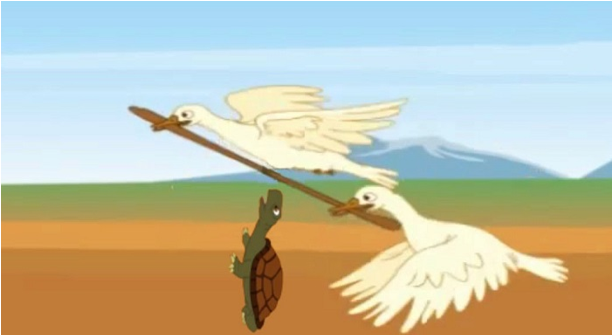
The tortoise couldn’t stop himself …death!
Maybe we should learn silence early in our life: it might help us avoid much of the trouble later on. I tell the following story to visiting children on the vital importance of keeping quiet.
Có lẽ chúng ta nên học giữ im lặng ngay từ buổi đầu để tránh những phiền toái xảy ra về sau. Tôi thường kể chuyện dưới đây cho trẻ con để giúp chúng hiểu giá trị của sự giữ im lặng.
In a lake in the mountains a long time ago, there lived a talkative tortoise. Whenever he met any of the animals that shared his waterside home, he would talk to them so much and for so long, without any pauses, that his listeners became bored, then bothered, then annoyed. They often wondered how talkative tortoise was able to talk so long without taking breath. They thought he must have been breathing through his ears, since he never used them for listening. He was such a torturing talkative tortoise that rabbits would suddenly dive into their holes, birds would fly to the tops of the trees, and fish would hide behind rocks whenever they saw talkative tortoise approaching. They knew that they would be stuck there for hours if talkative tortoise started talking to them. Talkative tortoise was actually quite lonely.
Có một con rùa ham nói sống trong một hồ nọ trên núi cao. Mỗi khi gặp bạn đến hồ rùa bắt chuyện và nói dai khiến ai ai cũng chán ngán. Chúng bạn nghĩ rùa không thở hay sao mà nói liên tục như vậy, hay là chú ấy thở bằng tai vì chú không bao giờ lắng nghe ai cả. Chú nói quá làm ai cũng sợ chú hết. Thỏ thấy chú thỏ thụt đầu vô hang, chim thấy chú vụt bay lên ngọn cây, cá thấy chú cá lội tránh vô kẹt đá để khỏi phải nghe chú nói hàng giờ mà không cáo lui được. Vì vậy chú rất cô đơn.
Every year in the summer, a pair of magnificent white swans would come on vacation to the mountain lake. They were kind, because they let talkative tortoise talk to them as much as he liked. Or perhaps they knew they would only be visiting for a couple of months. Talkative tortoise adored the company of the swans. He would talk to them until the stars ran out of twinkle, and the swans would always listen patiently.
Hồ của chú rùa ham nói được dịp đón tiếp đôi ngỗng trời đến nghỉ hè. Chúng rất tốt nên chiều rùa để rùa nói bao lâu cũng được. Vả lại chúng đâu có ở đây lâu mà ngại chuyện phải nghe rùa nói dài dài. Do đó chú rùa rất thích đôi ngỗng trời này. Chú nói đến lúc sao lặn chú vẫn còn nói và đôi ngỗng cứ kiên nhẫn nghe.
When summer was fading and the days became cold, the swans prepared to go home. Talkative tortoise began to cry. He hated the cold, and the loss of his friends.
Hè đi. Thu đến. Và đôi ngỗng chuẩn bị trở về quê cũ, chú rùa bắt đầu than và trách cái lạnh của mùa thu đã làm cho chú mất đôi bạn ngỗng. Chú thở dài:
‘If only I could go with you,’ he sighed. ‘Sometimes, when the snow covers the slopes and my lake ices over, I feel so cold and alone. We tortoises cannot fly. And if I were to walk, by the time I got even a little way, it would be time to comeback. Tortoises walk slowly.’
“Giá mà tôi có thể đi với hai bạn, chớ ở đây tuyết sẽ đến, hồ sẽ đông lạnh và sẽ buồn chán vô ngần. Rùa chúng tôi rất tiếc không biết bay. Còn đi bộ thì biết chừng nào tới; rùa chúng tôi bò chậm lắm.”
The compassionate swans were touched by the sadness in talkative tortoise. So, they made him an offer.
‘Dear tortoise, don’t cry. We can take you with us, if you can keep only one promise.’
Đôi ngỗng tốt bụng nghe rùa than động lòng nên đã đề nghị:
“Bạn rùa, anh đừng than trách nữa. Chúng tôi có thể đưa anh đi với chúng tôi nếu anh giữ cho một lời hứa”
‘Yes! Yes! I promise!’ said talkative tortoise excitedly, though he did not know what he had to promise yet. ‘We tortoises always keep our promises. In fact, I remember promising to rabbit to try and be quiet only a few days ago after I told him all about the different types of tortoise shells and ...’
One hour later, when talkative tortoise stopped talking and the swans could speak again, they said, ‘Tortoise, you must promise to keep your mouth shut.’
“Tôi xin hứa.” Rùa nhanh nhẩu trả lời dẫu chưa biết phải hứa gì. Rồi chú nói tiếp: “Rùa chúng tôi luôn luôn giữ đúng lời. Mới vài ngày trước đây chính tôi đã hứa với thỏ sẽ giữ im lặng sau khi kể cho thỏ nghe hết tất cả các loại mai rùa...”
Một giờ sau khi rùa bớt nói, đôi ngỗng mới xen vô nói rằng: “Anh hứa ngậm miệng nha”
‘Easy!’ said talkative tortoise. ‘In fact, we tortoises are well known for keeping our mouths shut. We hardly ever speak at all. I was explaining just this to a fish just the other day ...’
“Dễ ợt. Rùa chúng tôi nổi tiếng là giữ kín miệng; chúng tôi ít khi hả miệng lắm. Chính tôi đã giải thích cho cá biết điều này hồi gần đây và...”
One more hour later, when talkative tortoise paused again, the swans told talkative tortoise to bite on to the middle of a long stick and make sure he kept his mouth shut.
Một giờ sau khi rùa bớt nói đôi ngỗng mới xen vào bảo chú cắn giữa khúc cây và hứa không bao giờ mở miệng trên đường đi.
Then one swan took one end of the stick into her beak, and the second swan closed his beak onto the other end of the stick. They flapped their wings and ... nothing happened! Talkative tortoise was too heavy. People who talk a lot tend to eat a lot. And talkative tortoise was so fat that sometimes he couldn’t even squeeze into his own shell. The swans chose a lighter stick. Then, with the swans biting either end of the stick, and talkative tortoise biting the middle, the two swans flapped their wings as hard as any swans have ever flapped before and rose up into the air. With the swans rose the stick. And with the stick rose the tortoise.
This was the first time, in the history of our world, that a tortoise ever flew. Higher and higher they soared. Talkative tortoise’s lake grew smaller and smaller. Even the huge mountains now seemed tiny in the distance. He was seeing amazing sights that no other tortoise had ever seen before. He was carefully trying to remember it all, to tell his friends, of course, when he got back home.
Over the mountains they flew and then down to the plains. All was going well until, about half past three in the afternoon, they passed over a school where the children had just come out. A small boy happened to look up. What do you think he saw? A flying tortoise!
‘Hey!’ he shouted to his friends. ‘Look at that stupid tortoise, flying!’
Đoạn đôi ngỗng mỗi con ngậm một đầu cây và bay bổng lên không trung. Chú rùa đeo tòn ten dưới khúc cây. Lần đầu tiên trên đời có con rùa “bay”. Rùa bay càng lúc càng cao và núi non dưới chân chú giờ chỉ còn là những chấm nhỏ li ti. Ôi rất kỳ thú! Lần đầu tiên chú rùa mới có dịp thấy như vậy. Chú cố nhìn để ghi lại tất cả trong ký ức hầu sau này sẽ kể lại cho bạn bè nghe.
Ngỗng và rùa bay qua núi rồi tới đồng bằng. Bình an vô sự. Đến một trường học vào lúc tan trường. Một cậu bé thấy chuyện lạ la lớn:
“Rùa bay! Tụi bây nhìn kìa, có con rùa quái gở đang bay!”
The tortoise couldn’t stop himself.
‘Who are you calling ... oops! ... stuuu ... piiii ... d!’
‘SPLAT!’ went talkative tortoise as he crashed to the ground. And that was the last sound he made.
Không thể tự chế, rùa nói:
“Đứa nào dám nói ... quái ..gở!”
Đó là tiếng nói sau cùng của chú rùa vì chú đã rơi cái bịch xuống đất tan xác rồi (Viết theo chuyện Tiền thân “Chuyện con rùa”- Kachapa Jataka, số 215)
Talkative tortoise died because he couldn’t keep his mouth shut when it really mattered. So, if you don’t learn how to keep quiet at the proper times, then when it is very important you will not be able to keep your mouth shut. You might end up as a hamburger patty, like the talkative tortoise.
Chú rùa hay nói bị chết thảm thiết vì chú không biết ngậm miệng trong lúc cần thiết. Cũng vậy, nếu chúng ta không học ngậm miệng đúng thời đúng lúc, chúng ta có thể sẽ phải chịu số phận của chú rùa.
68. Free speech - Tự do ngôn luận
I am surprised that speech is still free in our modern market driven economies. It must only be a matter of time before some cash-strapped government regards words as another commodity and puts a tax on speech.
Tôi rất ngạc nhiên khi biết ngôn luận vẫn còn được tự do trong thế giới kinh tế thị trường hiện tại. Nhưng có lẽ chẳng còn bao lâu nữa các chánh quyền sống vì tiền sẽ xem lời nói như nhu yếu phẩm và sẽ không bỏ lỡ dịp đánh thuế đâu!
On reflection, it might not be such a bad idea. Silence would once again become golden. Phone lines would no longer be tied up by teenagers and the queues at supermarket checkouts would flow freely. Marriages would last longer as young couples simply couldn’t afford the cost of an argument. And it would be comforting to consider that certain of your acquaintances would be contributing enough public revenue to supply free hearing aids to those they have deafened over the years. It would shift the tax burden from the hard workers onto the hard talkers. Of course, the most generous contributors to such a splendid tax scheme would be the politicians themselves. The more they argue in parliament, the more money would be raised for our hospitals and schools. How satisfying a thought.
Nghĩ cho cùng cũng đúng thôi. Và im lặng được xem đúng là vàng ròng, như chúng ta thường nghe trong câu chuyện “im lặng là vàng!” Bấy giờ, trẻ con không còn dán tai vào điện thoại. Quầy tính tiền trong siêu thị sẽ không bị ứ đọng vì câu chuyện bá láp. Vợ chồng sống chung lâu hơn vì không ai muốn bỏ tiền đóng thuế cho một cuộc cãi vã. Có thể quỹ tài trợ mua sắm máy nghe dành cho người khiếm thính sẽ đủ để không còn ai phải sống trong cảnh im lặng như hiện nay. Công nhân sẽ nhẹ gánh thuế má vì đã có người ham nói đóng giùm cho rồi. Dĩ nhiên người đóng loại thuế này nhiều nhứt không ai khác hơn là các chánh trị gia chuyên nghiệp. Trong quốc hội, dân biểu và nghị sĩ tranh cãi nhiều chừng nào kho thuế nhà nước sẽ đầy bạc chừng nấy và nhà thương cũng như trường học sẽ được mọc lên như nấm gặp mưa. Cũng thích thú đó chớ hả các bạn?
Lastly, for those who might think such a tax scheme impractical, who could afford to argue vigorously against it?
Sau cùng, ai bảo cách thâu thuế nói trên không thực tế, xin lên tiếng đi và lý luận càng nhiều càng tốt.

“Marriages would last longer as young couples simply couldn’t afford the cost of an argument.”
Sources:
Tài liệu tham khảo:
- https://tienvnguyen.net/p147a884/chuong-7-
- https://www.bps.lk/olib/bp/bp619s_Brahm_Opening-The-Doors-Of-Your-Heart.pdf
- Photo 2: http://evdhamma.org/index.php/dharma/dharma-lessons/item/1129-huong-an-lac-vuot-ngoai-the-gian-song-ngu
- Photo 3: https://yeuplus.com/post/to-dong-pha-doi-nguoi-trai-qua-7-noi-kho-nay-roi-cung-duoc-binh-an.html
- Photo 4: https://medium.com/swlh/why-humanity-must-wise-up-to-survive-58157fdedc81
- Photo 5: https://www.va.gov/health/newsfeatures/2017/march/ten-ways-to-eat-wisely-a-focus-on-nutrition.asp
- Photo 6: https://www.culturalindia.net/indian-folktales/panchatantra-tales/talkative-tortoise.html
- Photo 7: https://awwmemes.com/i/sometimes-its-better-to-just-remain-silent-and-smile-the-20621266


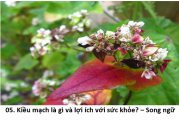
![[7-12] - Chuyện Vui Ngắn - Short Funny Stories – Song ngữ [7-12] - Chuyện Vui Ngắn - Short Funny Stories – Song ngữ](/images/resized/59b514174bffe4ae402b3d63aad79fe0_7-12._title_224_120.png)
![[13-20] - Chuyện Vui Ngắn - Short Funny Stories – Song ngữ [13-20] - Chuyện Vui Ngắn - Short Funny Stories – Song ngữ](/images/resized/fa447a14965dfd70772de1948c4d467d_13-20._title_224_120.png)

